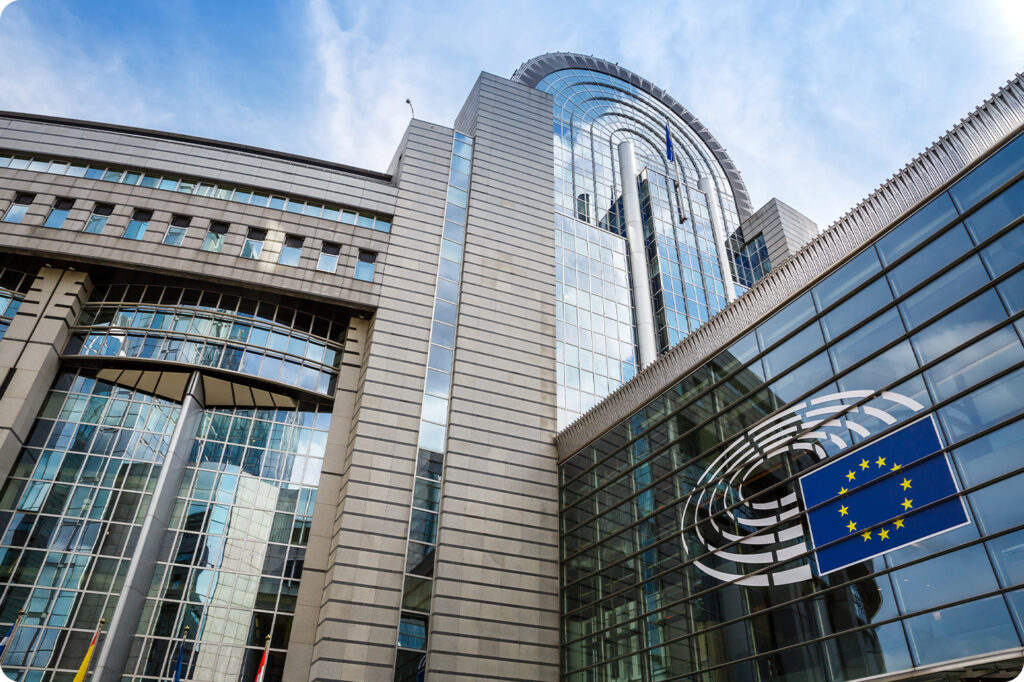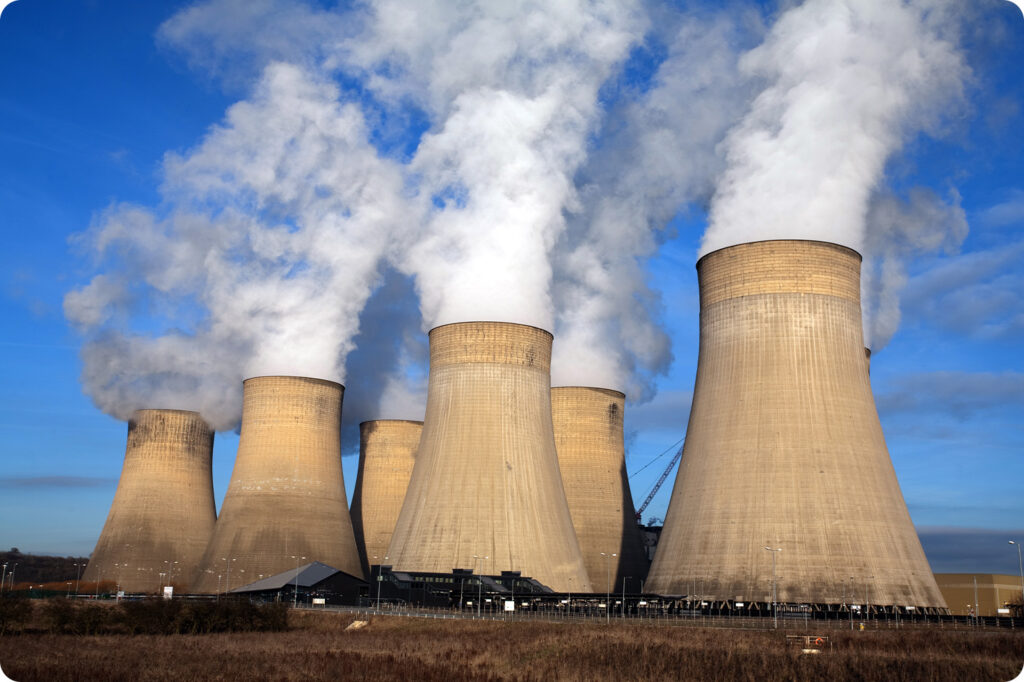The top five climate risk and disclosure stories this week.
Want access to deeper insights and curated climate news? Request a demo of our solution today.
European Parliament rebuffs bid to weaken sustainability reporting standards

The European Parliament rejected an effort by some lawmakers to water down the European Sustainability Reporting Standard (ESRS), which will be used by over 50,000 companies to fulfill climate and environmental disclosure requirements.
A cross-party coalition of 44 parliamentarians tabled a resolution on October 11 stating that the ESRS “cannot enter into force” and demanding the European Commission put forward new requirements that “significantly reduce” the complexity and quantity of sustainability reporting. On Wednesday, the resolution was defeated by 359 votes to 261, with 11 abstentions.
The ESRS will be used by companies subject to the Corporate Sustainability Reporting Directive (CSRD) to meet mandatory disclosure requirements. The standards encompass climate change, pollution, water and marine resources, biodiversity and ecosystems, as well as resource use and the circular economy.
The climate-specific standards require companies to describe their plans to adapt to a low-carbon energy transition and how they intend to align with a 1.5°C warming pathway, among other things.
The Global Reporting Initiative (GRI), a sustainability reporting organization that supported the technical work developing the ESRS, said the European Parliament’s final endorsement of the rules was a “game changer”. Independent climate change think tank E3G also welcomed the vote.
“The last-minute calls to reject and water down the sustainability standards were an attempt to instrumentalise businesses and SMEs [small and medium sized enterprises] to justify inaction. Businesses and SMEs need support and guidance to seize the opportunities of this transition,” said Jurei Yada, programme lead at E3G.
Separately, the European Commission announced on Wednesday plans to delay the implementation of certain reporting requirements under CSRD. Specifically, it wants to postpone the introduction of sector-specific reporting requirements for two years. Instead of having to comply with these disclosures by 2024, companies will start reporting them in 2026. Companies will still have to publish reports that align with the first set of cross-sector ESRS from 2025.
The Commission also proposed delaying the requirement for large, non-EU companies operating within the bloc to produce CSRD-compliant reports from 2026 to 2028. Over 10,000 non-EU companies are expected to be captured by the CSRD.
CA100’s Benchmark reveals climate progress shortfall

Carbon-intensive companies are not moving fast enough to align with Paris Climate Agreement goals, the world’s largest investor initiative on climate change says.
With its latest Net Zero Company Benchmark, Climate Action 100+ (CA100) reveals that many of its focus companies still have to produce short-term emissions targets, allocate capital toward climate solutions, and engage with climate-friendly policies. On the positive side, the companies are doing well in setting long-term emissions targets and reporting on their climate risks in line with the Task Force on Climate-related Financial Disclosures (TCFD) recommendations.
CA100’s Benchmark assessment grades companies on a series of indicators covering their disclosure of climate-related information and alignment of climate policy activities with Paris Agreement goals. This year’s assessments were conducted using CA100’s updated Benchmark, which was launched in March.
According to the Benchmark, 59% of focus companies assessed this year have transition plans that identify actions needed to meet their GHG reduction targets, up from 52% in October 2022. However, companies are still falling short when it comes to quantifying the contribution of these actions to their emissions reduction goals, as well as on disclosures on the use of offsets and abatement technologies. Additionally, only 37% of long-term and 33% of medium-term emissions reduction targets cover material Scope 3 emissions, and just 30% of long-term targets are aligned with a 1.5°C trajectory.
When examining climate-friendly investments, the Benchmark shows that just 29% of companies disclose the amount of capital allocated to climate solutions like electric vehicles and renewable energy, while 32% specify the value of capital expenditure they plan to allocate to these solutions in the future.
Few companies are aligning their real-world climate policy engagements with the goals of the Paris Agreement. Only 4% of companies fully align with these goals, and 66% partially align.
The latest Benchmark is the fourth produced by CA100. This edition covered 170 focus companies. CA100 has 700 investor members with over US$68trn in assets under management.
Net zero asset owners cut financed emissions

Members of the Net-Zero Asset Owner Alliance (NZAOA) cut absolute financed emissions in 2022 by around 3.5%, even as the size of the initiative increased.
Emissions financed by 66 members assessed in 2022 came to 213.4 million tons of carbon dioxide equivalent (tCO2e) in 2022. This is down from the 221.2 million tCO2e in 2021 financed by 64 members. The total number of NZAOA members stands at 86, up from 81 in December 2022 and just 12 in September 2019.
The data was part of the NZAOA’s third annual progress report, which highlights increased climate action among its members and urges governments to support policies that will propel capital toward the net-zero transition.
The report also reveals that 69 members with a combined US$8.4trn in assets under management have set intermediate climate targets following the Alliance’s target-setting protocol, compared to 44 members last year. The protocol requires companies to set investee engagement targets along with at least two out of three other target types — sub-portfolio, sector, and climate solution investments. Sub-portfolio targets have to align with low or no overshoot 1.5°C temperature pathways.
However, a significant minority of members still have not adopted the Alliance’s thermal coal policy as of the end of May. Fifteen percent of members have a policy that does not align with the NZAOA’s position, 3% have a policy that partially aligns, and 3% have no thermal coal policy at all. Members without a thermal coal policy that aligns with the NZAOA have been asked to provide an explanation, which will be reviewed by their peers.
Report warns against ‘climate-washing’ misinformation

Acts that mislead or exaggerate the climate-related impacts of organizations risk creating “a false sense of confidence” that the net-zero transition is well underway, a new report argues.
The paper out of the UK-based Grantham Research Institute on Climate Change and the Environment says incidences of “climate-washing” can delay effective solutions and investment in the low-carbon transition. Climate-washing includes misleading advertisements and public communications, false environmental, social, and governance credentials, and specious carbon credit claims.
The report also explores the possibility of sustainable finance being compromised by bribery, money laundering, and fraud. Such corruption could hinder the flow of capital toward the low-carbon transition and potentially redirect it towards high-emitting activities. Additionally, the report investigates “abuse of process” issues, which involve actors dishonestly exploiting legitimate legal procedures for their own ends, for example by circumventing the need to obtain “free prior and informed consent” from Indigenous and local communities affected by climate solution projects.
To address these risks, the report calls for “robust governance structures” and supportive engagement against corruption from governments, businesses, and other entities. Although anti-corruption laws exist, enforcement efforts have not yet adequately targeted corruption in the context of climate solutions, the report says. It suggests that raising awareness of practices weakening climate solution implementation, such as through targeted guidance, can help identify issues at an earlier stage.
UK government consults on Scope 3 reporting

The UK government launched a consultation on Thursday on “the costs, benefits and practicalities” of Scope 3 emissions disclosures by British companies.
At present, Scope 3 emissions disclosures are largely voluntary in the UK. In contrast, Scope 1 and 2 emissions have to be reported by large companies subject to the Streamlined Energy and Carbon Reporting (SECR) framework. The UK government is now seeking views on whether Scope 3 emissions should be reported by companies. This comes amid the publication of the International Sustainability Standards Board’s (ISSB) disclosure requirements, which instruct companies to report their Scope 1, 2, and 3 emissions. The UK is working on transposing the ISSB requirements into its domestic reporting requirements.
The consultation aims to establish the feasibility of Scope 3 emissions reporting to ascertain whether the government should endorse the ISSB standards and to inform a review of the current SECR framework. The consultation closes December 14.
“Whilst government assesses the suitability of the ISSB’s standards for use in the UK, the time is right to build our evidence base on reporting Scope 3 emissions to inform UK emissions reporting requirements,” the consultation paper reads.

